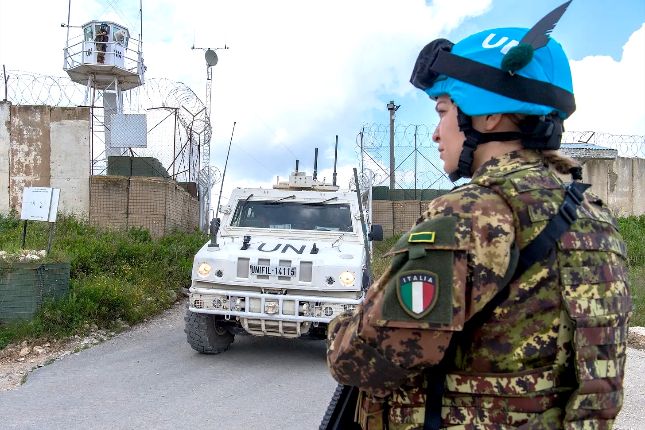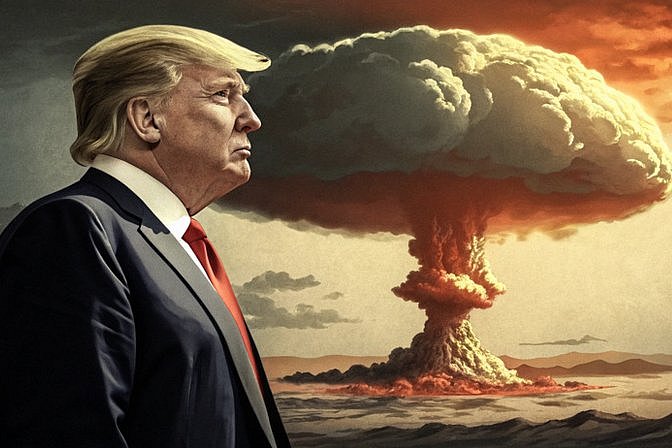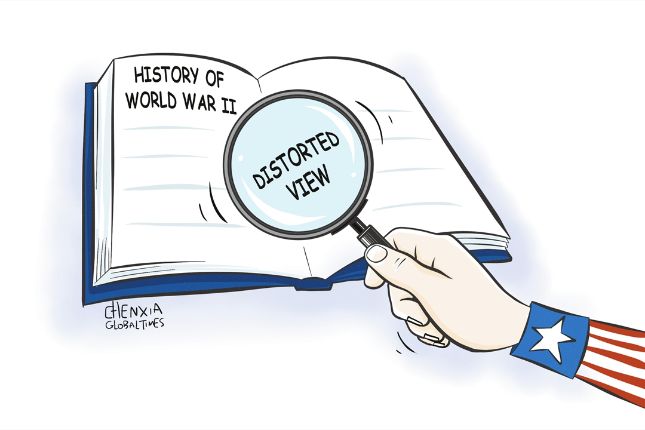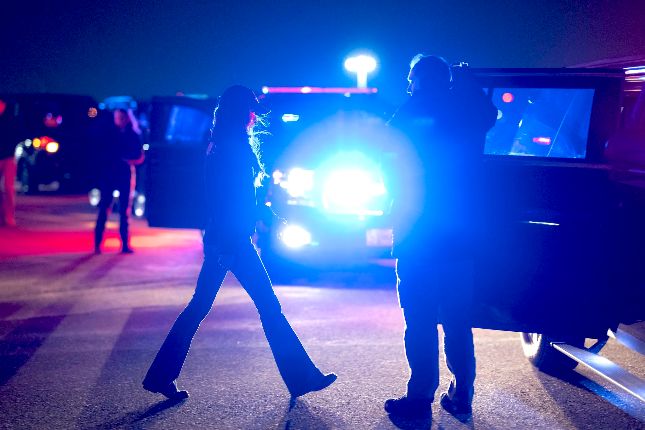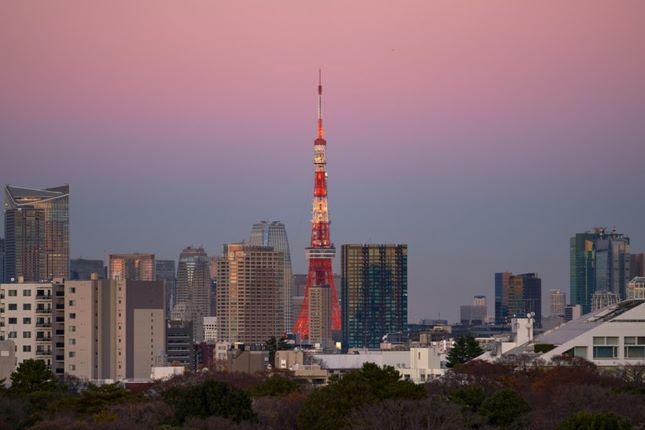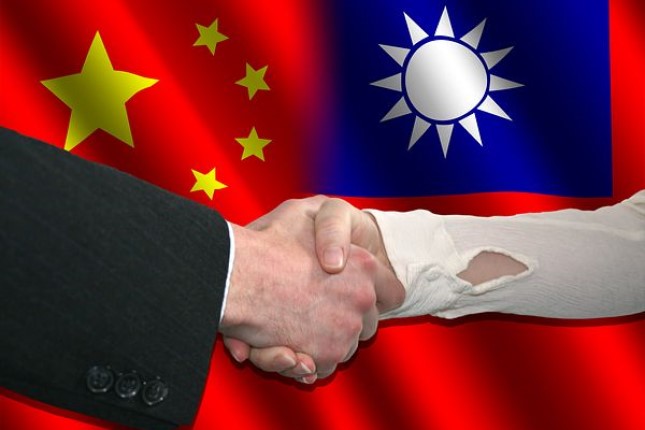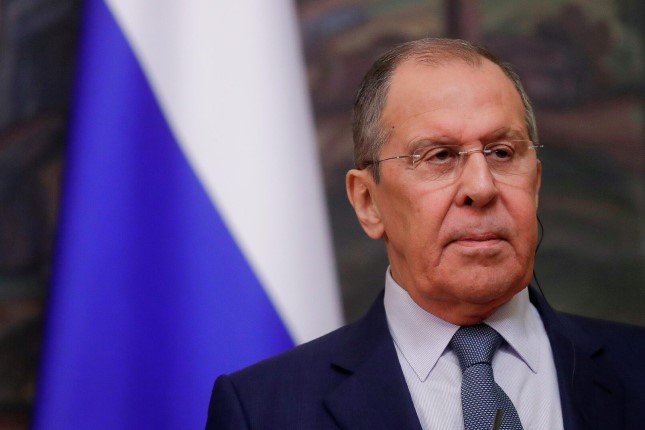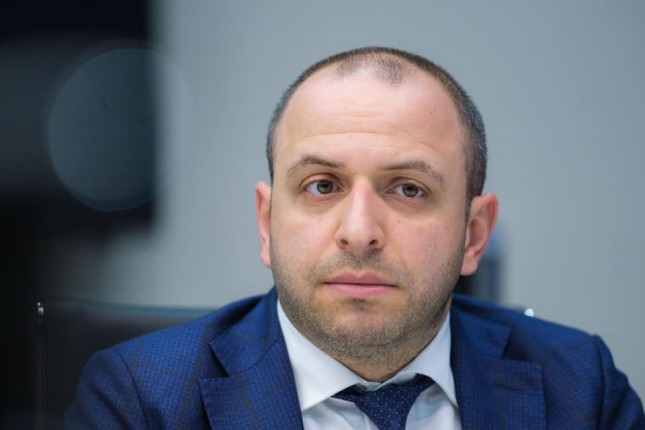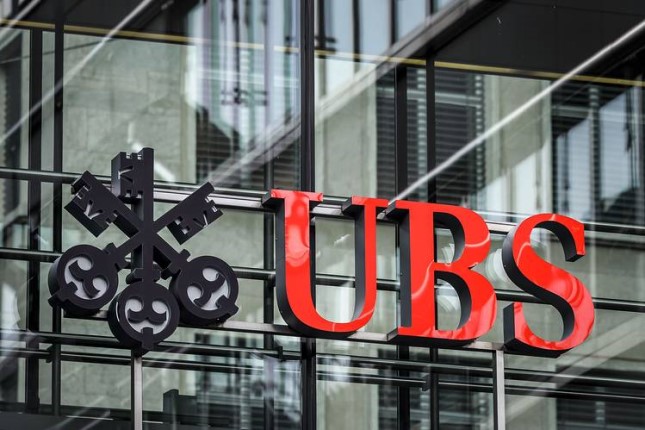A former senior U.N. peacekeeper says Israel is targeting U.N. forces in Lebanon to avoid violations in international law being recorded and to force them out of the country.
Retired Irish officer Kevin McDonald says intimidation of United Nations Interim Force in Lebanon (UNIFIL) soldiers in the country reflects an Israeli imperative to prevent the world from knowing how its ground invasion is unfolding and he expected it to increase dangerously.
McDonald had served as a peacekeeper in south Lebanon over a 20-year period, where he witnessed U.N. peacekeepers being targeted and killed by Israeli forces. He told In Context that Israel was now deliberately undermining not just the laws of war, but also the very basis of international humanitarian law.
Over the past two weeks there have been several direct attacks on UNIFIL peacekeepers, injuring several soldiers.
Israeli Prime Minister Benjamin Netanyahu has told the UNIFIL to withdraw from its 29 posts located across south Lebanon “danger zone,” a call so far rejected by the U.N. Security Council (UNSC) and UNIFIL troop-contributing countries.
Israel began its invasion on Oct. 1 but has come up against stiff opposition from Lebanese Shia resistance group Hezbollah, which has carried out attacks on Israel since Oct. 8, demanding it cease a genocidal onslaught in Gaza. Israel has so far killed approximately 2,500 people in Lebanon, the vast majority of them civilians, as it continues to bomb towns and villages, as well as the Lebanese capital Beirut.
“Looking at how things are developing with the levels of intimidation, it may well be that one of the Israeli aims is to get UNIFIL, not just out of the frontier area, but out of the country,” McDonald says.
UNIFIL said the IDF “deliberately demolished” a watchtower and the fence surrounding its Marwahin post on Oct. 20 (local time). It followed an incident on Oct. 16, when a Merkava tank fired at peacekeepers near Kafer Kela, damaging another watch tower.
“The Israelis have gone from a low level of intimidation to a much more kinetic level of intimidation, like they used a laser range-finder to laser the observation post before firing a tank round at it to make sure they had the right range settings on the tank,” the former commandant says.
In the most egregious violation of U.N. premises, two IDF Merkava tanks blew up the main gate of a U.N. position in Ramyah and forced entry in a dawn raid on Oct. 13, after three platoons of IDF soldiers crossed the Blue Line. The Israelis repeatedly requested the base turn its lights out, before leaving after UNIFIL protests that U.N. peacekeepers were being put at risk.
Hours later 15 peacekeepers at the post suffered skin irritation and gastrointestinal reactions. McDonald put the incident down to artillery fire, a deliberate act to cause a smokescreen.
“I’ve been involved with that and that stuff is noxious. It really is. It’s not gas in the sense of tear gas or CS gas or anything like that. But it is particularly noxious,” McDonald says.
Deliberate attacks on U.N. compounds are breaches of international law and violations of U.N. Security Council resolution 1701.
The day before the U.N. position had also sustained damage from shelling, while IDF soldiers blocked a critical UNIFIL logistical movement near Meiss ej Jebel. On Oct. 12, a peacekeeper at UNIFIL’s headquarters in Naqoura was hit by gunfire.
The attacks were condemned by 40 of the 50 nations that supply troops to the UNIFIL mission, including China, India, France, Italy and Spain.
An IDF standoff with Irish peacekeepers earlier at post 6-52 close to the border with Israel heightened diplomatic intensions between Israel and Ireland, with Irish President Michael D Higgins condemning Israeli requests for U.N. peacekeepers to leave their posts as “an outrageous threat.”
Israeli tanks and a D9 bulldozer used to build an earthen berm were positioned adjacent to the post as the IDF took up firing positions against Hezbollah. The forces left after high-level diplomatic talks between U.N. officials in New York and the IDF.
McDonald said he did not believe the IDF positioned itself there because they thought Hezbollah might not fire back.
“Another way of looking at it is that by intimidating the Irish out of it, then they could take it over and of course there’s bunkers there, which are better than earthen berms,” he said.
“But I think the more logical reason is, these guys and girls in the post are the eyes and ears of the international community, and the Israelis don’t like their actions to be viewed by other people or broadcast to the world. I think that’s what happened.”
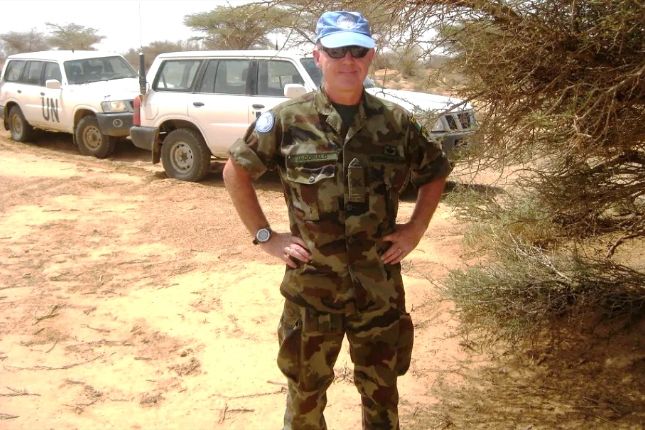
Commandant Kevin McDonald on patrol in Houza, Western Sahara in December 2012. Photo: Óglaigh na hÉireann, Flickr, CC BY-NC 2.0.
His comments echoed Irish Defence Minister Micheál Martin’s last week, who said Israel was attempting to “give itself a free reign” in Lebanon.
McDonald has good reason to believe this, based on his experiences nearly 20 years ago in the border village of Khiam, when a GPS-guided 1000lb bomb was dropped from an F16 jet on top of a clearly-marked and well-established U.N. compound, killing four soldiers.
The IDF, who at the time were suffering unsustainable losses in Israel’s 33-day conflict with Hezbollah, claimed its attack on the U.N. compound on July 25, 2006, had been an accident.
McDonald said: “The khiam patrol base was at the end of a long ridge, just south of the town of Thiam and it overlooked the Hula Valley. The Hula Valley is a big, wide valley and it’s the only large manoeuvre space along the frontier with Lebanon where you can kind of manoeuvre a division of tanks prior to moving into Lebanon. “My gut feeling is there were two reasons for that attack. One was to stop our guys reporting on Israeli movements in Lebanon, which is what they’re required to do as military observers. They report violations. “I think the second one was giving the finger to the international community, because at that stage they were like a schoolyard bully that got beaten and were lashing out, at schools, mosques, hospitals, petrol stations, anything. So, they do have a certain wariness of people observing what they’re doing. And of course, there’s no one in Gaza to observe what they’re doing, apart from the Palestinians.”
At the time of writing, the IDF had killed at least 130 journalists in Gaza since Oct. 7 last year, as well as killing 228 UNRWA staff, targeting its hospitals and schools and other facilities of U.N. organisations. No Western journalists have been allowed into the Gaza strip to observe Israel’s military onslaught, a campaign The Lancet medical journal back in April said could have killed 188,000 Palestinians.
“I do think that they would like to see UNIFIL, especially those small operating positions close to the frontier, of which there’s about 20 along the length, and the rest of what we call ‘depth positions’, like the battalion headquarters to the rear, gone,” McDonald says.
“So, the pattern of intimidation may get worse.”
McDonald published his own detailed account of the Khiam base attack in Peacekeeping on the Edge, as reported by West Asia war correspondent Robert Fisk. It underlined how vulnerable U.N. peacekeepers were, a situation that hasn’t changed since and may have even gotten worse.
He wrote that complaints were raised with UNIFIL, United Nations Truce Supervisory Organisation [UNTSO], and top officials at the U.N. headquarters New York who received false assurances from the IDF that strikes around the base would cease that day.
The observational roles played by U.N. soldiers today at posts like 6-52 are what continues to make them vulnerable to similar attacks, something gravely concerning McDonald. Post 6-52 was one the Israelis themselves had requested be built in 2000, due to it being considered “key terrain,” having a vantage point over settlements in northern Israel.
The fact such posts have reinforced bunkers offers no safety to U.N. peacekeepers, given Israel’s use of modern weaponry.
McDonald points out the Khiam post was completely destroyed by the Israelis while unoccupied 20 years earlier and had been rebuilt with a fortified steel and concrete bunker under a two-storey building, with walls and ceiling a metre-and-a-half thick.
“It still managed to kill the four U.N. soldiers,” he said. “A bunker buster missile I guess does exactly what it says on the tin.”
Israel’s military hardware is what makes UNIFIL’s mandate of protecting civilians almost impossible to fulfill. It has the authority to use force if it comes up against hostile actions, but UNIFIL peacekeepers are no match for an Israeli army backed by the West.
“It’s very hard to protect civilians when you’re faced with an onslaught of one of the most modern armies in the world, with all the high-tech jets, artillery, naval artillery, all that kind of stuff,” McDonald said.
“The armed peacekeeping force isn’t going to be able to do that. It’s very easy for people who don’t know exactly what UNIFIL is capable of and exactly what its mandate is like, to believe they can.”
This was underlined most notably in April 18, 1996, when 15 IDF artillery shells landed in a U.N. compound near Qana, killing 106 civilians who had been sheltering there and injuring at least 116 others.
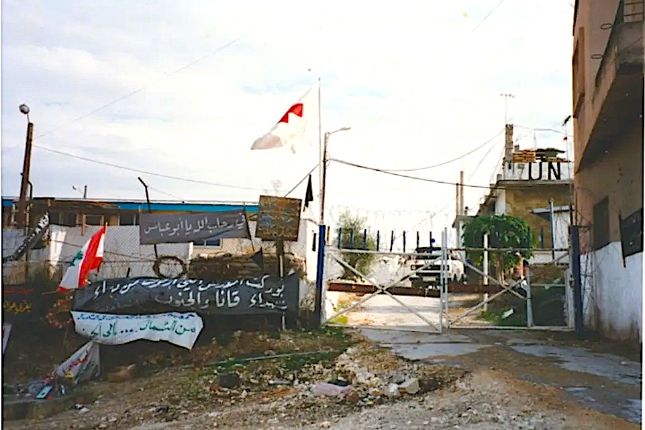
Entrance to U.N. base in Qana, 1992. Photo: Padres Hana, Wikimedia Commons, CC BY-SA 4.0.
Israel is continuing to bomb Beirut, as well as towns and villages sheltering displaced Shia communities, its Dahiya doctrine of targeting civilians creating terror among Lebanon’s general population. It is a doctrine seemingly backed by German Foreign Minister Annalena Baerbock, while largely ignored by other Western officials.
McDonald describes how Israel attempted to use similar types of collective punishment in hope they would turn on Hezbollah in the past and how it ultimately failed. “I was there initially in 1984 when the Israelis were occupying a large portion of south Lebanon. I was there in 1993 where there was a seven-day war ‘Operation Accountability’ and I was there 1996, when there was also a seven-day war, ‘Operation Grapes of Wrath.’ And both of those two wars were, we say, ‘stand-up’ wars, where the whole idea was to intimidate the Lebanese people to get out of their homes, based on the idea that that would force them to turn against Hezbollah. “But of course, all it did was turn them into Hezbollah supporters. They also wanted to create a refugee crisis that would force the government of Lebanon to take firmer action against Hezbollah, which is difficult because Hezbollah is a political party… It’s also a welfare organisation with schools and hospitals and mosques and stuff like that, so it’s deeply embedded in society.”
It mirrors tactics employed in Gaza with genocidal intensity since Oct. 7, waged partly as a means of encouraging division and loss of Hamas support among Palestinians and partly as means of ethnic cleansing. The latest large-scale strikes over the weekend on homes in the north Gazan town of Beit Lahiya left at least 87 dead and 40 wounded.
Attacks on Lebanon and military harassment of U.N. forces have served to distract from the ongoing actions of Israel in Gaza, which the International Court of Justice (ICJ) has ruled to be a plausible case of genocide.
McDonald believes Israel is undermining such instruments of international humanitarian law and the very foundations of the U.N. itself.
“They’re undermining international humanitarian law and the law of armed conflict nearly on an hourly basis in Gaza and in Lebanon,” he says. “They have not signed up to the International Criminal Court. They’ve barred U.N. Secretary-General António Guterres from entering Israel. There’s definitely a policy where it suits them to have no accountability under international law. “Then, of course, we should use international law against their perceived enemies and threats, but you know, ‘how dare you hold us accountable?’ Whether it’s a stated policy or an unstated policy, it’s definitely a policy that the U.N. should be undermined at every chance that they get. “They need to remember however, when UNIFIL was created, it was created with the agreement of both sides to the problem — Lebanon and Israel. So, if they want to pull out of that contract they’ll have to fight that case in the court of public opinion.”
McDonald is not the only one who finds Israel’s deep antipathy towards the U.N. ironic, given it owes the post-war world consensus body gratitude for voting it into existence, a move the wisdom of which is now being openly questioned, at least in its current form.
The ICJ itself ruled Israel in flagrant violation of international law over its annexations of Palestinian land and seemingly condemned its policies as a violation of the prohibition of apartheid in the International Convention on the Elimination of All Forms of Racial Discrimination.
It was reported last week that the Palestinian Authority (PA) is seeking to expel Israel from the United Nations General Assembly using the same procedural methods that succeeded in denying apartheid South Africa diplomatic credentials to represent the country in 1974.
Earlier this month, Saul J Takahashi, professor of human rights and peace studies at Osaka Jogakuin University, argued complete expulsion was necessary to protect the very basis of the international order. He wrote: “There is a pressing need to hold Israel accountable, not only for its longstanding violations of international law, but specifically for its longstanding refusal to abide by its Charter obligations. “In the face of this recalcitrance, the U.N. must move towards expelling Israel from the organization, not only because the U.N. exists to uphold international law, but also to maintain the U.N.’s integrity as an organization.”
Main photo: UNIFIL peacekeepers on vehicle patrol between Ras Naqoura and Labounieh along the Blue Line, south-west Lebanon, April 2024 © Pasqual Gorriz / UN.
Source: Consortium News.
